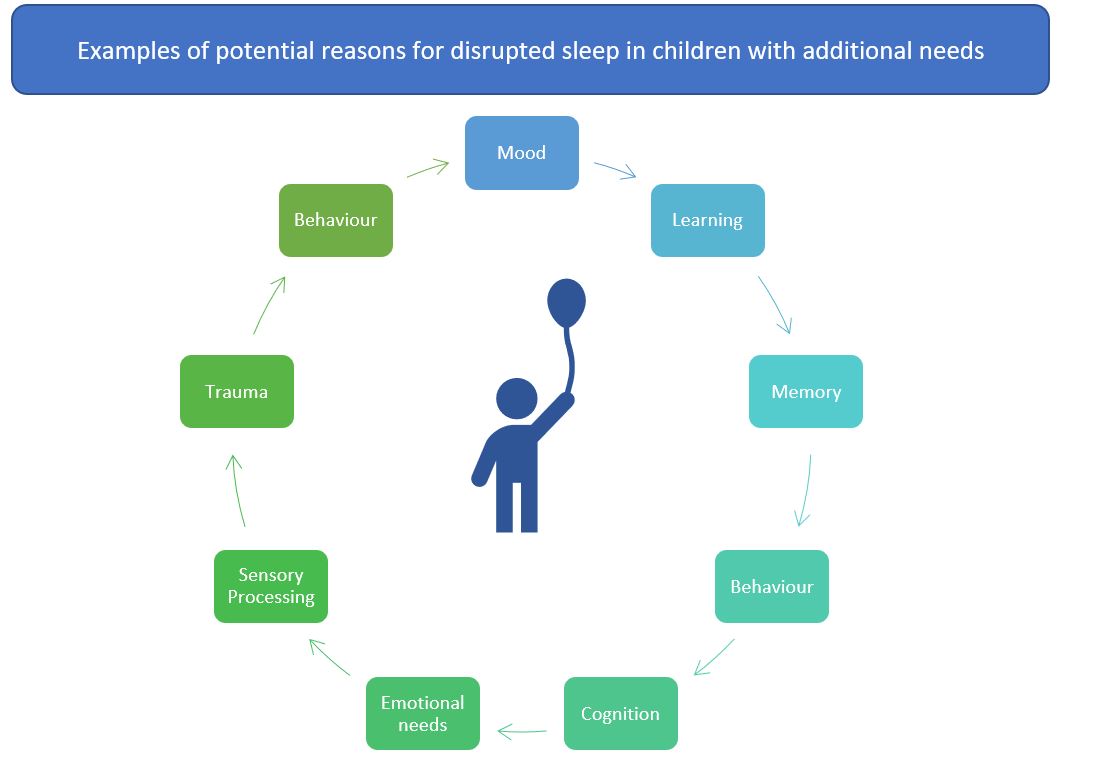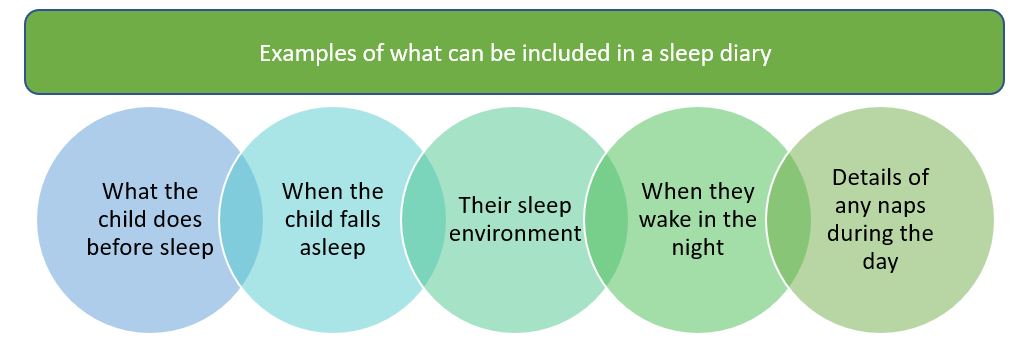Children and Young People's Occupational Therapy Service
Sleep and Rest
Sleep Management
It is common for children and young people with additional needs to have difficulties with sleep. Disrupted sleep can have an effect on those caring for them as well as others within the household. For the child themselves, the impact of interrupted or inadequate sleep can effect their ability to engage with other activities, learn and develop among other things.

If you feel that there is a specific physical problem which needs to be addressed such as that your child is in pain, impacted by their medication or has a specific condition which effects their sleep, please discuss this with your child’s GP or Paediatrician.
Some general advice for sleep management can be termed as ‘sleep hygiene’ this advice involves looking at the child’s routine, bedtime foods and drinks, exercise, bedtimes and wake times, bedroom environment, sleep associations, and screen time.
To find out more about sleep hygiene as well as advice on specific sleep problems, Cerebra have produced a thorough guide on sleep for parents alongside other sleep related resources. They also offer virtual sleep seminars where you can find further information.
Scope also provide some helpful resources on managing your child’s sleep.
Alongside seeking the advice of your GP and other sleep guides, understanding your child’s sleep can be the first step in finding solutions, they can also be invaluable to visiting professionals in helping you and your child.

This process will help you to understand more about your child’s sleep and identify which techniques will be best placed to manage them.
Please talk to us about your child’s sleep needs as we may be able to provide further advice, support or signposting to services.
Energy Conservation
Some children living with disabilities, long term illness or short-term illness may be impacted by fatigue which can impact how they are able to engage in everyday activities. Supporting children who may experience fatigue can be difficult, especially if this is a new experience for them that they might be struggling to get used too.

Agreeing on a plan to help with managing energy can be helpful in gathering everyone’s viewpoints and creating a realistic route forward. Most importantly, considering what the child’s thoughts and expectations are, is essential in helping shape expectations and goals. Starting out by having an honest discussion about what is manageable for the child can be a great way to start.
It is important that goals are not compromised and that opportunities for movement and independence are still encouraged, it is about making activities purposeful and enriching to the day. Any agreed plan should be regularly reviewed and where possible should include options on how to begin reducing measures or increasing tolerance to build up to full days or activities dependent on the individual circumstances.
Below are some suggestions to explore, we recommend reviewing a variety of options to help you choose techniques and advice that suits your situation. See some below options to get you started, this is not an exhaustive list and further research is recommended in creating a working plan:

